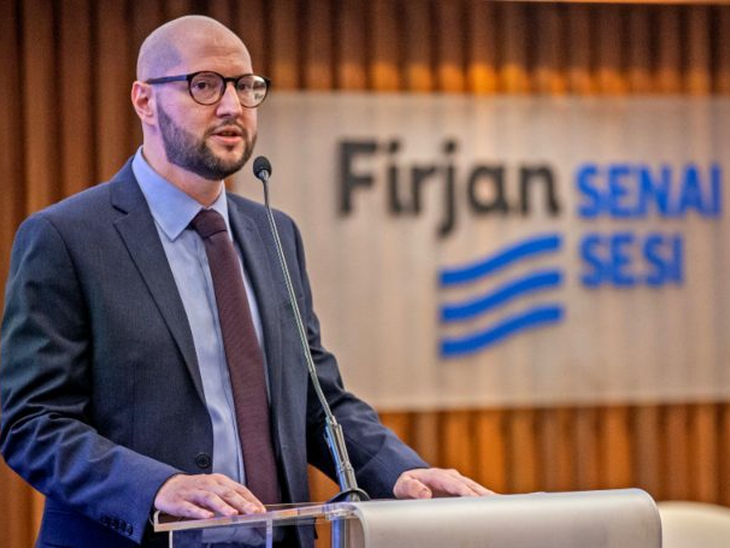
T&B Petroleum/Press Office

Developing a successful business is no easy task. What's more, there's no shortage of business lessons to highlight the constant need to adapt in order to survive and not go bankrupt. Innovating in products and processes, having the capacity to respond quickly and being attentive to regulatory changes are some examples of the challenges already known to the market.
Unfortunately, to date, no one has discovered a magic formula that guarantees a consistently positive return. In the end, without profit, any business cannot sustain itself. Even more so when we're talking about a market that is global in nature, as is the case with oil, for example. The competition is with players from all over the world.
In the same way, opportunities can also arise in international ventures. But how do you get there? How can you reach a foreign market or at least be part of local opportunities?
While institutions and government bodies may have a series of initiatives to facilitate the entry of companies into the market, it is often not enough. Or worse, it doesn't even come to the attention of the interested parties.
Diverse events such as business roundtables, internationalization programs and sector catalogs end up not being effective, as they don't always fully meet the needs of companies, both buyers and suppliers.
There may be endless paths and success stories to inspire established companies and new businesses that arise naturally. All those who remain active and prosperous must follow three steps: study, interact and monetize.
This is how Firjan SENAI SESI's Network of Opportunities Program is structured, aimed at supporting and developing the industrial base for oil, gas, and energy projects, especially those located in the state of Rio de Janeiro.
These three steps summarize the essentials, but the reality is much more significant, for instance, with prior procedures, complementary actions, auxiliary processes, filling in forms and an extensive list of obligations, to put it mildly.
Studying the market is the starting point for defining an assertive strategy when doing business in a complex environment. Proof of this are the billion-dollar figures that reflect the need for specialization in energy production, which is crucial for the world.
You need to know the language of oil, natural gas and other energy sources. Know that these markets are often related, each with its own specificities. In increasingly dynamic times, keeping up to date is a challenge per se, but you have to monitor the big numbers and indicators by segment.
There is also room for a dedicated focus on identifying the productive capacity of industrial plants at a local level, paying attention to competition and partnerships. Just over a year old, the Network of Opportunities has already mapped over 2,000 companies based in Rio de Janeiro state. In all, there are nearly 10,000 potential suppliers of a wide variety of goods and services in Brazil.
But just acquiring market knowledge won't necessarily result in a contract. It is essential to interact with authorities, influencers, trade associations, the scientific community, businesspeople, and many other relevant players in the industry, but mainly with industry representatives from strategy, operations, supplies and sales.
Part of the Network of Opportunities is precisely to hold meetings so that a large purchasing company can detail what its purchasing requirements are, as well as its investment horizon. In this way, it's possible to translate in tangible demands for potential suppliers, not just talking about 5 billion dollars for an offshore production system, but bringing in specifics for valves, pumps, or even understanding which items are critical, those with more difficulty in finding a suitable supplier.
Also, interacting involves matching buyers' needs and suppliers' solutions, while evaluating the most diverse types of certificates, technical capacity certificates and mandatory legal certificates, among other criteria.
Finally, we need to go further and monetize. Over the course of the Program, in just more than a year and ten editions, more than 300 different demands have been made by large companies interested in expanding their supplier base. From this list of demands, it has been possible to identify more than 3,000 companies throughout Brazil with a convergent portfolio.
To date, the Program has reached more than 900 companies that have participated directly in the editions, with an evaluation rate of 94% recommending the Program to partners.
Monetizing also involves mapping competitiveness gaps, another Network of Opportunities' deliverable that makes it possible to prepare and qualify supplier companies, often with vocational training or technological consultancy from SENAI, or even by contributing to legal compliance with the NR - Regulatory Standard by SESI.
The Program has already instigated large companies to implement improvements in their purchasing processes and to manage their suppliers more closely. It's not simple. There are many steps to overcome, but developing the industry and the economy involves making these connections happen and working to ensure that excellent deals can be closed.
About the author: Thiago Valejo Rodrigues holds a degree in Chemical Engineering from UERJ, an MBA in Oil and Gas Economics from UFRJ, and a postgraduate degree in Business Intelligence Master - Intelligent Business Decision Support Systems from PUC-Rio. He works as a Project Manager in Oil, Gas, and Naval at Firjan.

Contact us